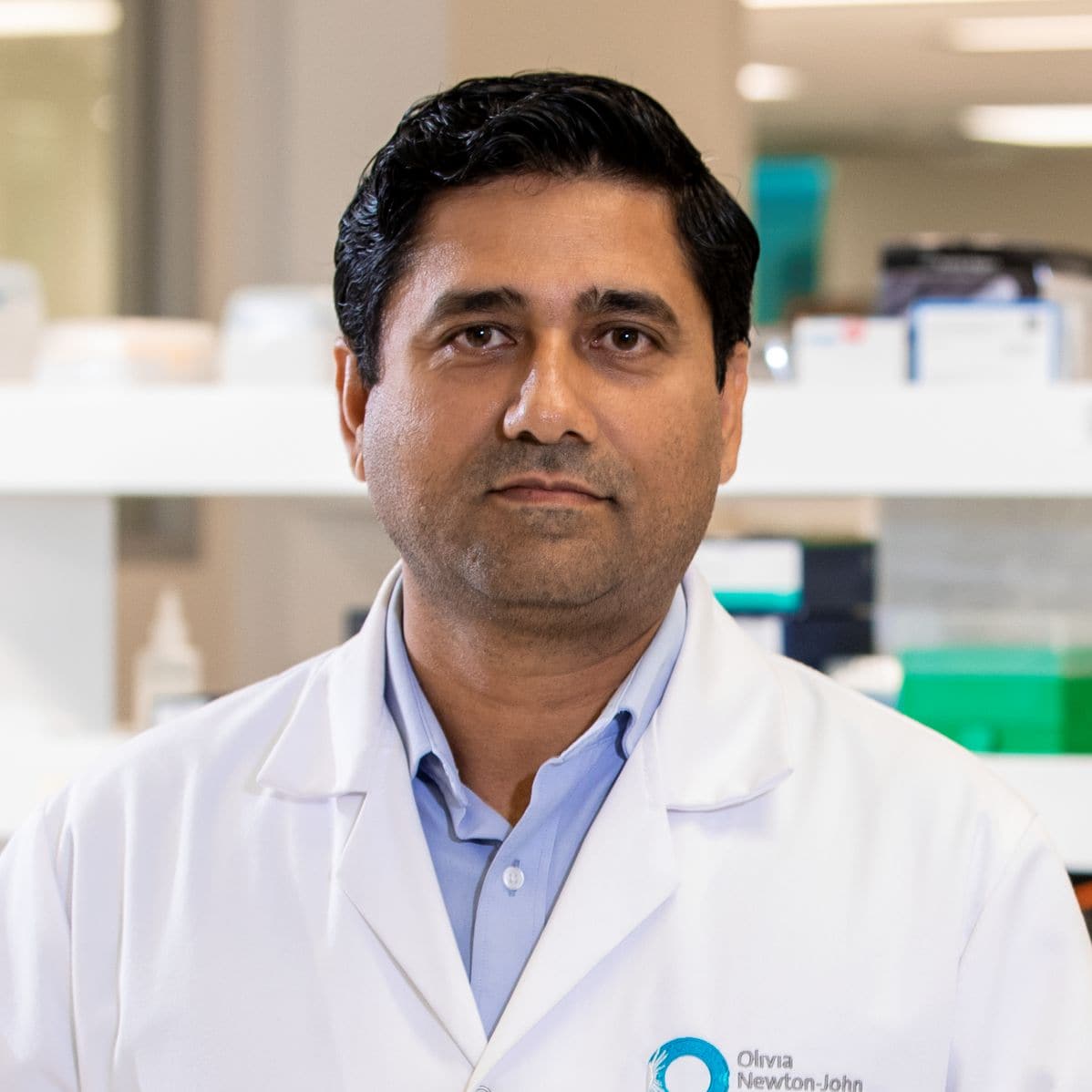
Taking the brakes off the immune system to treat breast tumours via an innovative immunotherapy approach
Published: 05/11/23 8:34 AM

Bhupinder Pal
Project Description: Immunotherapy is a treatment that boost’s the body’s own immune system to fight cancer and while it has shown extraordinary success in some tumours like melanoma, its effectiveness has been limited in breast cancer. Dr Bhupinder Pal (Olivia Newton John Cancer Research Institute) has discovered that breast fat tissue around the tumour is enriched with regulatory T cells that prevent the body’s immune system from destroying cancer cells. This study aims to evaluate the effectiveness, in preclinical models, of two candidate compounds that specifically target and turn off regulatory T cells in breast tumours. This targeted approach will be an innovative way to unleash the body’s immune system to kill breast tumours and potentially prevent adverse side effects.
Why the Work is Needed: Despite advances in the detection and treatment of breast cancer over 3,000 Australians still die from this disease each year. Immunotherapy is a promising treatment that boost’s the body’s own immune system to fight cancer however, this approach has shown limited success in treating breast cancer. Hence, there is an urgent clinical need to improve the effectiveness of immunotherapy for breast cancer that will improve the survival of hard-to-treat breast cancer.
Expected Outcomes: The successful outcomes from this study will reveal the therapeutic potential of two anti-cancer compounds that turn off regulatory T cells, either alone or in combination with other immunotherapies for breast cancer. This will provide the rationale for initiating clinical trials in breast cancer patients.
Project Details
Immunotherapy is a treatment that boost’s the body’s own immune system to fight cancer and while it has shown extraordinary success in some tumours like melanoma, its effectiveness has been limited in breast cancer. The immune system is important for defending against infections and for the removal of diseased and damaged cells, but it is tightly controlled to limit the destruction of healthy cells. The presence of immune cells called regulatory T cells is one of the ways it does this.
Dr Bhupinder Pal from the Olivia Newton-John Cancer Research Institute has discovered that breast fat tissue around tumours is highly enriched with these regulatory T cells that regulate the immune system. Regulatory T cells suppress the function of cytotoxic T cells, immune cells that can destroy cancer cells. The presence of these cells supports cancer growth and renders current immunotherapies ineffective. To develop a treatment strategy against regulatory T cells, Dr Bhupinder Pal and the team has identified two proteins, Icos and St2, that are specifically enriched in these regulatory T cells. Compounds that target Icos and St2 have been generated.
With this NBCF support, Dr Bhupinder Pal aims to test the efficacy of anti-Icos and anti-St2 antibodies in breast cancer preclinical models. It is anticipated that these compounds will eliminate regulatory T cells in and around the breast tumour and boost the levels of the body’s immune cells that can kill breast cancer cells. The ability to boost anti-tumour immunity localised to the breast has the added advantage to reduce autoimmune-like side effects around the body. This innovative targeted therapeutic approach will be applicable to most breast cancer patients as Icos and St2 regulatory T cells dominate in all breast cancer subtypes.